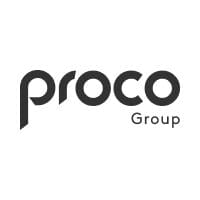Key insights from Proco Group’s latest roundtable.
On Wednesday 8th January 2025, Proco Group’s APAC team brought together thought leaders from our network to discuss the challenges and opportunities within the planning function. Co-hosted by Peter Metcalfe from Oliver Wight, the roundtable surfaced critical considerations and actions to create long-term planning processes.
In this article we share topics and key insights that were discussed at the event.
Data Integrity and Decision Making in Supply Chain Management
The roundtable discussion highlighted the critical role of data integrity in shaping effective decision-making across diverse supply chain contexts. With the volatile and unpredictable dynamics of recent years—marked by the COVID-19 pandemic, fluctuating commodity prices, and political shifts—ensuring accurate and actionable data has become essential for building resilience and agility in supply chain management. Below are the key insights shared by the participants on this topic:
Adapting to market and political challenges
The conversation emphasised the evolving nature of supply chain structures, which must adapt every few quarters to keep pace with market changes, global disruptions and political shifts, e.g. U.S.-China relations and policy changes under the new Trump administration. This highlights the necessity of maintaining data integrity to quickly respond to external factors. Data not only provides clarity on the present situation but also helps organisations anticipate shifts and make informed decisions.
This sentiment was echoed by several attendees. For example, the steel industry is heavily influenced by geopolitics and market fluctuations in regions such as Southeast Asia and North America. For some organisations, short-term planning relies heavily on high-quality data to navigate such swings effectively.
Choosing the right planning tools
The group reflected on the importance of aligning planning tools with specific business sector needs, noting that using overly sophisticated tools in inappropriate contexts can lead to suboptimal decisions, underscoring that data must be tailored to the business’s unique requirements.
While chasing the “latest and greatest” data for constant replanning might seem ideal, organisations must weigh the costs and benefits to determine when such updates add value versus creating unnecessary churn.
Bridging talent and technology
A key challenge that was identified during the roundtable is how to retain organisational knowledge amidst frequent tool upgrades and integrations. While tools provide the framework for decision-making, the value derived depends on how well teams understand and use their functionalities. There is a critical need to balance the sophistication of technology with the skills of employees and customers. Without transparency and good communication, decision-making is only as strong as the weakest link in the data flow and interpretation process.
Evolving strategies in the face of disruption
Many of the attendees’ organisations have witnessed the shifting paradigms in supply chain planning—from “just-in-time” to “just-in-case” and back again—driven by external disruptions and customer demands. This underscores the importance of having reliable and real-time data to adapt strategies. However, talent attraction and retention in the supply chain function remain a challenge, which further complicates leveraging data for effective decision-making.
Building organisational resilience
Attendees raised broader questions about organisational resilience, emphasising that data integrity is pivotal not only for responding to immediate disruptions but also for building long-term strategies. Cultural clashes and communication issues within global teams indicate that aligning people and data is crucial for cohesive decision-making.
The Importance of Executive Buy-In to Planning
The discussion moved to the critical role of executive buy-in in ensuring the success and sustainability of planning processes, such as Integrated Business Planning (IBP) and Sales and Operations Planning (SnOP). Participants emphasised that while tools, processes and frameworks are vital, the cultural and leadership dimensions of planning are what ultimately determine their effectiveness. Below are the key themes that emerged:
Cultural shifts and leadership commitment
The conversation highlighted that planning maturity is deeply rooted in organisational culture and embedding it as a way of life takes time. It was noted that cultural shifts are gradual but necessary for achieving sustainable and profitable growth. Having a mixed organisational culture often creates unique challenges, with long-standing practices clashing with efforts to adopt best-in-class planning. However, irreversible progress can be made, reflecting the impact of leadership commitment.
Balancing strategic focus and operational involvement
It’s important to simplify data to avoid “analysis paralysis” and ensure executives focus on strategic decisions rather than being pulled into lower-level processes. The imbalance between talent availability and process demands can result in leaders wearing multiple hats, which detracts from their ability to guide long-term planning effectively.
Long-term vs. short-term planning
There is a need for a dual focus in planning:
- Short-term financial planning to address immediate priorities
- Long-term planning, particularly in industries with extended lead times like seeds (2-3 years)
Successful planning requires executive commitment to both timelines, ensuring decisions are aligned with both immediate goals and future growth strategies.
The role of executive advocacy in alignment
Having strong executive support, including involvement from the leadership team, is instrumental in aligning supply and sales functions. This alignment is crucial for addressing challenges such as demand fluctuations and factory adjustments over a 12–18-month horizon. Conversely, in organisations without strong executive backing, disconnects between functions can hinder planning effectiveness.
Customisation and Contextualisation
Even with top-down commitment to IBP, planning must be tailored to fit specific business contexts. For example, while downstream operations may benefit from longer-term planning, upstream commodity trading often focuses on shorter horizons (3-6 months). Executive buy-in is essential for navigating these nuances and ensuring planning processes are customised to meet the unique needs of different segments.
The Importance of Replanning in Effective Supply Chain Management
Replanning is an essential component of effective supply chain management, enabling organisations to adapt to changing conditions and refine their strategies based on new data and evolving assumptions. However, the roundtable discussion emphasised that while replanning is valuable, it must be approached with discipline, clear objectives, and a focus on organisational context. Below are the key insights shared by participants:
Assumption-based planning and review
Planning often rests on assumptions, yet research shows that fewer than 30% of organisations regularly review these assumptions. Monthly assumption reviews, rather than full-scale replanning, were recommended as a way to maintain focus without overburdening teams.
It’s important to review assumptions in long-term planning to assess what has changed. However, there is a disparity between commercial and production teams, where short-term replanning (1-2 weeks) is common for optimising production schedules. This can raise concerns about whether teams are spending too much time generating new plans rather than executing existing ones.
The role of decision relevance and reaction times
There is a need to evaluate the purpose of replanning: “Why am I looking at this data? Can it drive revenue or improve decision-making?”
For products where production occurs only once a year, frequent replanning adds little value due to long reaction lead times. This underscores the importance of aligning replanning efforts with the operational realities of the business.
Tailoring replanning to business complexity
The group highlighted that the frequency and method of replanning must vary across business sectors and operational contexts:
- In simple and efficient businesses, the focus is primarily on manufacturing costs, requiring minimal replanning.
- For high-complexity operations with thousands of SKUs and raw materials, frequent replanning is necessary to avoid producing the wrong products or mismanaging inventory.
- In agile sectors like consumer electronics, speed is critical, necessitating regular coordination to meet short lead times and rapid order fulfilment.
It’s also important to align the “frozen window” (time horizon for fixed plans) with operational maturity. Advanced sites can handle shorter frozen windows, enabling greater agility, while less mature sites may require longer windows to ensure reliability before shortening them over time.
Creating a safe environment for replanning
A key cultural barrier to effective replanning is the reluctance to acknowledge and act on unfavourable data. Senior managers may drive a focus on meeting numbers at the expense of addressing critical issues, creating an environment where people hesitate to share bad news. Successful replanning requires fostering a culture where honesty is valued, and messengers are not penalised for sharing difficult information.
Enhancing process flow and discipline
While the discipline for individual planning steps exists, challenges remain in ensuring seamless information flow from Demand Review (DR) to Supply Review (SR). Improving this flow is essential for consolidating information and driving actionable outcomes during replanning cycles.
–
We would like to thank everyone who attended the roundtable and shared such important insights. If you would like to be invited to future Proco Group events, please click the button below to register your interest.
Proco Group partners with organisations around the world to provide both comprehensive advisory and executive search services. For a conversation about your organisation’s talent requirements, please don’t hesitate to get in touch.




